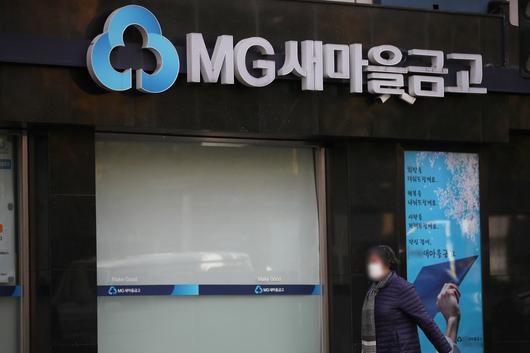S. Korea eyes extra budget early next year to boost economy
The South Korean government is considering a supplementary budget early next year to address weak domestic demand and slowing economic growth. This would be in addition to the 2025 budget proposal currently under parliamentary review.
A senior presidential official said, “We will conduct a detailed analysis of the required funding, and if necessary, consider a supplementary budget.” While President Yoon Suk-yeol’s administration has emphasized fiscal discipline since taking office, the official added, “Now is the time for fiscal policy to take a more active role.” The government aims to inject additional funds into the economy to stimulate domestic demand and tackle growth slowdowns, as changing economic conditions have created a need for new fiscal measures not included in the original budget plan. Since President Yoon took office in May 2022, a supplementary budget has been implemented only once.
View related articles
CJ CheilJedang to sell bio unit valued at $4.3 bn
CJ CheilJedang is seeking to sell its bio division, valued at about 6 trillion won ($4.3 billion). The company has selected Morgan Stanley as its lead advisor and is in talks with potential buyers. An industry insider said, “With increasing pressure from low-cost Chinese competitors, CJ likely sees this as the right time to sell, as its technology and distribution networks are intact.” The bio division includes red bio (pharmaceuticals), white bio (eco-friendly materials), and green bio (feed additives and seasonings), with green bio accounting for over 90% of sales. The sale is focused on the green bio segment, estimated at 6 trillion won. CJ CheilJedang, which expanded into the sector during the Asian financial crisis, leads the global market in amino acids like lysine and tryptophan for animal feed. The company plans to retain the white and red bio segments.
View related articles
Lotte Group stocks plunge amid liquidity crisis rumors
Shares of Lotte Group’s major listed companies dropped following rumors of a liquidity crisis. The rumors, sparked by a YouTube video titled “Lotte Group facing disintegration” on Nov. 16, spread through various media. On Nov. 18, the group denied the claims, calling them “false” and considering legal action against those spreading the rumors. Despite these efforts, investor sentiment remains weak. The market value of Lotte Group’s 11 listed companies fell from 20 trillion won at the end of last year to about 13 trillion won, with its ranking among major conglomerates dropping from 12th to 16th. The group has been under emergency management since August.
View related articles
Global TV shipments expected to rebound after 5-year decline
Global TV shipments are expected to rebound this year after five years of decline, as consumers begin spending on new purchases. According to TrendForce, TV shipments in the third quarter reached 52.33 million units, up 9.6% from the previous quarter and 0.5% year-on-year, slightly surpassing expectations. Shipments are forecast to continue growing in the fourth quarter, with an estimated 56.3 million units, up 2.5% from the third quarter and 0.5% year-on-year. Following a surge in demand during the COVID-19 pandemic, the global TV market had been in a downturn due to the economic recession and reduced consumer confidence. However, the market is gradually recovering, driven by appliance subsidies in China and a rebound in demand from mature markets in Europe and North America.
View related articles
 |
A woman walks past a Korean Federation of Community Credit Cooperatives (KFCC) branch in Seoul on Nov. 17, 2024. /News1 |
<이미지를 클릭하시면 크게 보실 수 있습니다> |
Insolvent or at-risk KFCC branches more than double to 131 nationwide
As of September, the number of Korean Federation of Community Credit Cooperatives (KFCC) branches classified as insolvent or at risk of insolvency has risen to 131, more than doubling since June. The increase follows stricter evaluations of real estate project financing (PF), which reclassified many PF-related bonds as non-performing loans, contributing to the rise in troubled branches.
Data from the financial sector shows that, by the end of the third quarter, 126 KFCC branches received a Grade 4 rating (vulnerable) and five received a Grade 5 rating (high risk). The management evaluation system rates branches from one to five based on profitability and asset quality. Grades 1 to 3 indicate stable operations, while Grade 4 signals insolvency risk, and Grade 5 indicates insolvency.
View related articles
52-hour workweek exemption proves unusable for most firms
According to the Ministry of Employment and Labor on Nov. 19, only 5,230 cases used the “special extended work” system, which allows for an additional 12 hours of work per week due to workload surges between January and October. This represents just 0.7% of the 775,000 eligible businesses with five or more employees. Of these, only 28 cases were approved for research and development (R&D). When the ruling People Power Party proposed a special semiconductor law on Nov. 11 to exempt R&D workers from the 52-hour workweek, opposition parties and labor groups argued that companies could use the existing extended work system, but this criticism proved unrealistic.
The system’s low usage is due to its complicated approval process, which requires companies to predefine employees and tasks, submit detailed documentation, and obtain prior approval. This process is particularly challenging for businesses facing sudden workload surges, as they must prove their situation is “exceptional.”
View related articles
Gov’t dismisses workplace bullying case against NewJeans’ Hanni
The Seoul Regional Employment and Labor Office closed a workplace harassment complaint filed by NewJeans fans against HYBE on Nov. 19, ruling that Hanni cannot be considered an employee under the Labor Standards Act. The Act only applies workplace harassment protections to employees in a subordinate relationship with their employer. However, the Ministry of Labor determined that Hanni’s contract does not meet this definition, as K-pop idols work in an “equal relationship” with their agencies. They do not follow company rules or systems, earn income from profit-sharing, and bear their own costs, taxes, and risks. Thus, Hanni’s contract was classified as a civil law agreement, similar to a commission, and she was deemed ineligible for workplace harassment protection.
View related articles
 |
Hanni from K-pop girl group NewJeans. /News1 |
<이미지를 클릭하시면 크게 보실 수 있습니다> |
One minute, that’s all it takes to know about Korea. Click here ☞ https://page.stibee.com/subscriptions/305897
[The Chosun Daily]
- Copyrights ⓒ 조선일보 & chosun.com, 무단 전재 및 재배포 금지 -
이 기사의 카테고리는 언론사의 분류를 따릅니다.
기사가 속한 카테고리는 언론사가 분류합니다.
언론사는 한 기사를 두 개 이상의 카테고리로 분류할 수 있습니다.
언론사는 한 기사를 두 개 이상의 카테고리로 분류할 수 있습니다.


